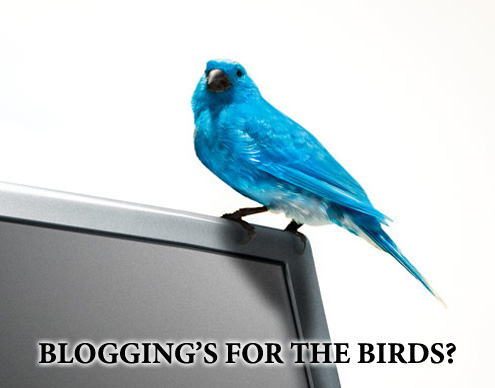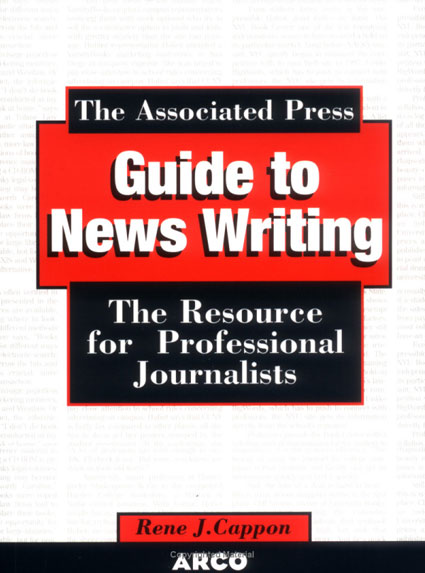I often read the following: “the tragic death of so-and-so.” I don’t mean to be insensitive, but when is death not tragic? Loss of life is always tragic, right, so why dilute the adjective? Agree, disagree? Should writers call death “tragic” or just call it “death”?

Credit: Lindsey Snow
Blog reader Derek Bobo asks via email:
I was wondering when and how you made the leap of faith to work for yourself. When did you know you were safe financially? What was the deciding factor, etc? I’m right on the brink but can’t seem to get myself to take the leap of faith.
Excellent question. Here’s my answer:
Continue reading…
Nearing the end of Out of Africa (review forthcoming), I couldn’t help but notice how author Isak Dinesen used a lone “fortune” as opposed to the more popular “good fortune” when she wrote:
“Natives have such a feeling for, and faith in, fortune, that now, after one success, they may have begun to trust that all was going to be well, and that I was to stay on the farm.” p370
By using fortune alone, which itself implies success, Dinesen caused me, the reader, to pause and consider what she wrote, rather than skimming a cliche. You too can add more meaning in writing by avoiding clutter adjectives, which dilute the meaning of words. A good reminder.

If millions of lifeless blogs and apologetic “sorry for not updating” posts were any indication, blogging isn’t for everyone. And if you’re hoping to make a national name for yourself as an amateur wordsmith, you’re about 3-4 years late to the party.
For everyone else (people with opinions, writers, pundits, and social networkers) regular blogging is still a worthwhile pursuit, provided you have something original to say. It can be used as a platform to start a career in writing, it can influence others, and for some, even subsidize a mortgage or provide a modest living.
I find it comical (not to mention anti-competitive) then when a blogger from the popular Silicon Vally gossip rag encourages lone stars to throw in the towel on blogging. Dumb. That’s like a used car salesman saying there’s no money in automobiles. While I admit blogging is over-saturated, it’s in no way a dead end. And it’s certainly more pervasive than Facebook, Twitter, and Flickr.
Here’s an oldie but goodie.
Hugh Gallagher won first prize in the humor category of the 1990 Scholastic Writing Awards for the following essay. He allegedly used it to get into NYU and graduated from the university in 1994. To call his work humorous is an understatement to say the least (via Educated Nation, thanks Robert). Continue reading…
According to Dictionary.com, “diffident” is an adjective describing someone who is:
1. lacking confidence in one’s own ability, worth, or fitness.
2. restrained or reserved in manner, conduct, etc.
Good word. Will have to use it more.
“Not all 🙂 as informal writing creeps into teen assignments,” reads a clever AP headline. Here’s an excerpt:
It’s nothing to LOL about: Despite best efforts to keep school writing assignments formal, two-thirds of teens admit in a survey that emoticons and other informal styles have crept in… “It’s a teachable moment,” said Amanda Lenhart, senior research specialist at Pew. “If you find that in a child’s or student’s writing, that’s an opportunity to address the differences between formal and informal writing. They learn to make the distinction … just as they learn not to use slang terms in formal writing.”
First of all, I love how avant guard the Associated Press was in using that playful headline in a formal news report. Secondly, I whole heartily agree that there’s a time and a place for informality. That goes for speech as well.
 I saw Me and My Girl last night — a play that takes place in 1920s England. The performance was entertaining (a bit stale at times), but I really enjoyed the English… which got me thinking of the funniest British words. They are:
I saw Me and My Girl last night — a play that takes place in 1920s England. The performance was entertaining (a bit stale at times), but I really enjoyed the English… which got me thinking of the funniest British words. They are:
- Bollocks. Figurative meaning: nonsense. Technical meaning: testicles. Codswallop is a less-descriptive substitute.
- Trousers. These are what Americans call “pants.” We understand the former term, but you’d get ridiculed for using it.
- Blimey. Is there a cooler way to say “wow” or “holy crap?” I think not.
- Salad-dodger. Quite possibly the funniest word I’ve ever heard for a fat, obese, or overweight person. Continue reading…
I’ve had several discussions this past week on the best way to interview someone in the name of journalism. Here are my thoughts, methodologies, and best practices when trying to extract pertinent information from key individuals.
-
Realize you’re interviewing a human being with feelings. It’s imperative that you are courteous and respectful even if you completely disagree with the person or they have a tendency to spin everything (spin frustrates accurate information, so that can be discouraging, I know).
-
Ask straightforward questions without context when possible, e.g. “Why did X happen?” as oppossed to “Given blah, blah, blah, and yada, yada, yada, why did X happen?” When you must use context, be sure to be as objective as possible when prepping the question.
-
Be fair. I know an individual that walked straight up to a Sony executive and asked him outright if the executive thought his employer was arrogant. The executive scoffed at the question and immediately walked away leaving the reporter with nothing more than an eye roll to report on. Bad idea. Bad approach. And definitely not fair. Even if someone shows heavy signs of what you’d like to reveal, you have to come at those questions sideways like, “What do you think about X?” in which the interviewee will most likely make known your hypothesis to be true.
-
No hints! When reporting, please don’t drop sparky hints. You’re readers aren’t retarded, and collectively they are much smarter than you. When it comes to straight news, just report what happened piecing together the story in chronological order while distilling information in inverted pyramid form so readers can ditch a story when they like.
-
View the interviewee as an asset. Remember that the interviewee has information you want access to. Use tact in getting said information so your audience can make an informed decision.
Anyone else have thoughts on interviewing for information? Comment if you got ’em.
 Write a lot. Then buy this book. Or vice versa.
Write a lot. Then buy this book. Or vice versa.
Don’t let the name mislead you—The AP Guide to News Writing will help you become a better writer of everything except maybe books. This quick and worthwhile read is full of helpful tips, professional counsel, and practical ways to further flex your prose.
Continue reading…
Humility is the most admirable trait a human being can posses. I’m convinced of that. It enhances all other personal qualities, and it motivates me to be a better individual, both professionally and personally.
Two weeks ago, I wrote a story for GigaOM. I was proud of the piece. I thought it was well covered, well written, and pertinent to my audience. Then I saw my editor’s edit. Wow! He completely transformed the copy into a much more vibrant and personable article. Granted, my points remained, he just sizzled them up to make the reading much more enjoyable.
He then emailed my article to our publisher for dissemination and — while CC’ing me on the email — said I did a great job on the piece without mentioning his sizable renovations. We could have easily shared the byline, but instead he just made me look ninja good without asking or wanting any credit in return. I was humbled by the experience, and realized I could do so much more in helping others prosper without recognition or payment. So yeah, do your best to try and make others look good.
[Thanks, James!]
When I’m not helping companies flex their web muscle, I enjoy writing. I got my start as a independent blogger here on Smooth Harold. From there I started a few other blogs which later secured professional gigs on larger blogs and traditional websites/magazines. But I’ve been spoiled as a blogger as I’ve never had to deal with editorial overrides until recently. In case you didn’t know, bloggers ARE the editors for virtually every online publication. We decide the headline, angle, tone, image, and word use. It’s rather liberating. 🙂
I wrote my first “non-blog” article late last year. The editor kept my headline and whatnot, only changing a few words here and there. The changes were very minor and even added some clarity, so I didn’t mind. A few articles later, a different editor at another publication restructured a few sentences of mine after I sent in my final draft. Though I disagreed on a few of his changes, for the most part, I was fine with them. Especially his copy edits to the headline which were better than my original. So it was all good.
Today, however, I sent in an article that was getting published in a few hours. I really liked my tone, word selection, and to an extent, my okay-headline. Shortly after, my editor (read: boss) sent back a radically and controversially angled version. I wasn’t quite sure what to do, and to make matters worse, I disagreed with the new-found premise. His headline was sure to foster more link-bait, but at the expense of what I thought was “a stretch” of a story. I sent back my differing thoughts to which a compromise was made. I then updated my story under his direction adding additional clarification to his edit, and the article went live.
After reading the my piece in published form, I went back and decided that I liked my original piece better with its accompanying angle and tone. In hindsight, I think it would have been better received. The take-away of all this? It’s nice to have your cake and eat it too as an experienced craftsman. Any Smooth Harold readers out there ever experienced the same? I suppose I should have seen this coming, as paying clients always have the last word, despite your creative opinion.
Pick the Brain has abridged George Orwell’s 5 rules for effective writing. All together now:
-
Don’t use cliches. We’re all guilty of this, but avoid them at all costs. Writing should evoke emotion. Cliches are cozy expressions that humans don’t internalize, thereby no emotion is felt.
-
Be concise. Wordy thoughts don’t sound intelligent, well-structured sentences do. (If I hadn’t written #1 above, I’d say “Less is more,” here.)
-
Strip out filler words. Trim the fat from your sentences. Never use two adjectives when one will do.
-
Use active voice over passive. The man wasn’t bitten by the dog (passive), the dog bit the man (active). It’s shorter and more forceful that way (Latin-based languages do this very well).
-
Avoid trade jargon. If you want your ideas to spread, avoid technical jargon in favor of an everyday word.
Thanks, George!



 I saw
I saw 